Earth
Sign up for our newsletter
We summarize the week's scientific breakthroughs every Thursday.
-
 Science & Society
Science & SocietyWe’ll be watching the skies, plus a lot more, this year
Acting Editor in Chief Elizabeth Quill predicts 2018 could be a year full of important space discoveries.
-
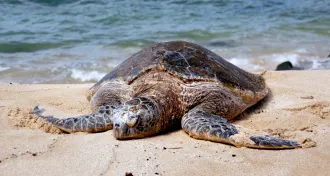 Climate
ClimateWarming ocean water is turning 99 percent of these sea turtles female
Green sea turtle populations in part of the Great Barrier Reef are becoming increasingly female due to higher ocean temperatures.
-
 Planetary Science
Planetary ScienceNASA is headed to Earth’s outermost edge
NASA’s upcoming GOLD mission will study the charged border between Earth and space.
-
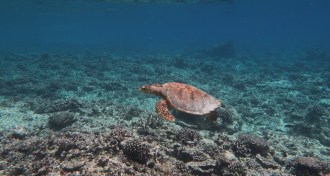 Oceans
OceansCorals are severely bleaching five times as often as in 1980
Corals are now bleaching more frequently and severely than they were in the early 1980s.
-
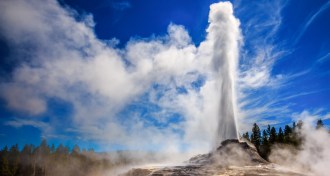 Earth
EarthA sinking, melting ancient tectonic plate may fuel Yellowstone’s supervolcano
The subduction of an ancient tectonic plate may be the driving force behind Yellowstone’s volcanic eruptions.
-
 Science & Society
Science & SocietyHow science and society crossed paths in 2017
In 2017, Science News covered the science events that everyone was talking about.
By Kyle Plantz -
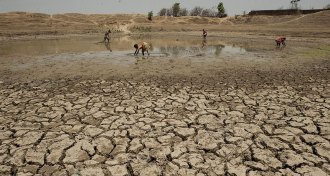 Climate
ClimateThese weather events turned extreme thanks to human-driven climate change
Ruling out natural variability, scientists say several of 2016’s extreme weather events wouldn’t have happened without human-caused climate change.
-
 Health & Medicine
Health & MedicineFracking linked to low birth weight in Pennsylvania babies
Babies born to moms living within one kilometer of a hydraulic fracturing site were more likely to be born underweight, researchers say.
-
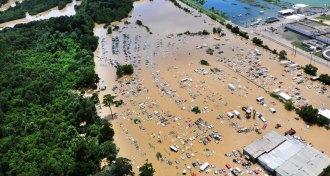 Earth
EarthFederal maps underestimate flood risk for tens of millions of people, scientists warn
New flood maps suggest that the U.S. government underestimates how many people live in floodplains.
-
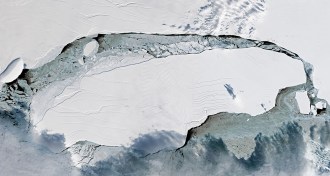 Climate
ClimateThe Larsen C ice shelf break has sparked groundbreaking research
The hubbub over the iceberg that broke off Larsen C may have died down, but scientists are just getting warmed up to study the aftermath.
-
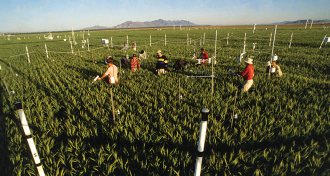 Health & Medicine
Health & MedicineWorries grow that climate change will quietly steal nutrients from major food crops
Studies show that rice, wheat and other staples could lose proteins and minerals, putting more people at risk of hunger worldwide.
By Susan Milius -
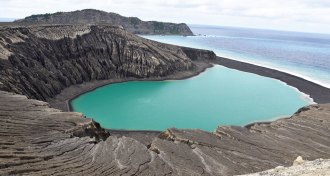 Earth
EarthWatching this newborn island erode could tell us a lot about Mars
The birth and death of a young volcanic island in the Pacific Ocean may shed light on the origins of volcanoes in Mars’ wetter past.